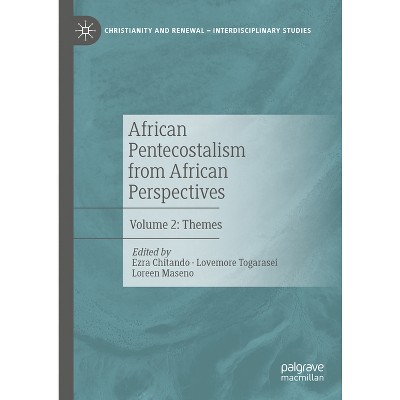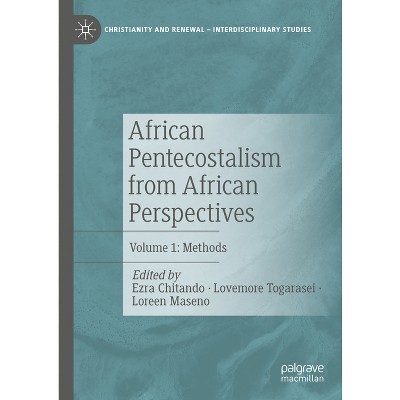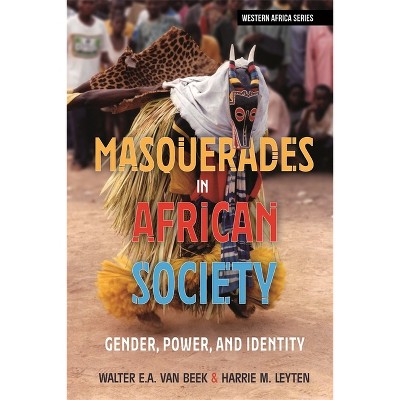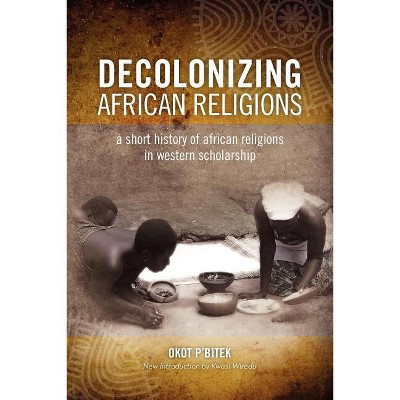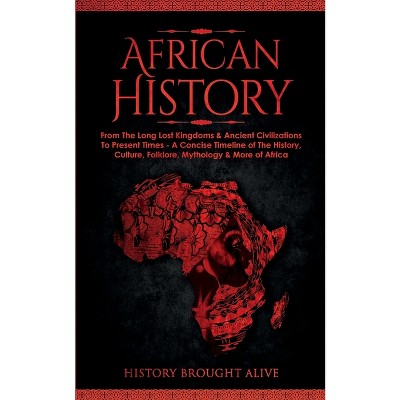Interdisciplinary Primer in African Studies - by Ishmael I Munene (Paperback)

$59.99 when purchased online
Target Online store #3991
About this item
Highlights
- A refreshing interdisciplinary study of contemporary Africa focusing on teaching African studies and an analysis of political, economic, socio-cultural, higher education, geography, managerial and scientific developments.
- About the Author: Ishmael I. Munene is an associate professor in the College of Education at Northern Arizona University.
- 330 Pages
- History, Africa
Description
About the Book
A refreshing interdisciplinary study of contemporary Africa focusing on teaching African studies and an analysis of political, economic, socio-cultural, higher education, geography, managerial and scientific developments. It is written by African scholars resident both in the USA and Africa.Book Synopsis
A refreshing interdisciplinary study of contemporary Africa focusing on teaching African studies and an analysis of political, economic, socio-cultural, higher education, geography, managerial and scientific developments. It is written by African scholars resident both in the USA and Africa.Review Quotes
An Interdisciplinary Primer in African Studies is a collection of brilliant but accessible essays drawing from various academic disciplines and sources of information. It is an incredibly compelling volume that will invite both beginners and seasoned scholars in African studies to a conversation about development of the field. The authors have adeptly identified and used some of the misconceptions that have pervaded the different worlds of inhabitants of the continent of Africa about Africans in diaspora and vice versa to dispel misplaced myths and stereotypes that media and popular culture have disseminated bereft of in-depth analyses. Moreover, not only does the book offer the reader a compendium of knowledge about Africa but also provides pointers to possible research questions and methodologies for understanding the history and culture of the diverse continent. This interdisciplinary study is a remarkable contribution to the developing field of Africa and the African Diaspora, which will certainly benefit undergraduates and graduates students in various fields of study.
In An Interdisciplinary Primer in African Studies, a collection of international experts examine the production of knowledge about Africa and why African studies continues to flourish in spite of earlier pronouncements that minimized the role of area studies. As globalization unfolds, several questions arise: What are the limitations of ethnocentrism and how should it be countered? Which paradigms and approaches provide the lens through which the study of Africa is organized? And finally, to what extent are African perspectives on diverse focus areas such as religion, geography, cultures, rural development, governance, decision making, mathematics, and psychology deserving of mainstream recognition and acceptance? Contributors here address these critical questions by presenting case studies and theoretical insights from African settings. Professor Ishmael I. Munene should be lauded for putting together an excellent book that broadly examines the complexities involved in essentializing African Studies. This well written interdisciplinary and multidisciplinary book will, therefore, appeal not only to experts in area studies but to specialists in development studies, education, humanities, and social sciences generally.
Munene (Northern Arizona Univ.) offers this collection as an intellectual salvo in support of Afrocentrism. This familiar position in African studies scholarship places Africans 'at the center of any knowledge produced about the continent.' Munene's iconoclastic introduction aims to follow in the large intellectual footsteps of Paul Zeleza (The Study of Africa, 2 vols., 2006-7)....The most notable essays are an illuminating discussion of psychology by James T. Gire and one on mathematics, which summarizes the fascinating work of Paulus Gerdes (Geometry from Africa, CH, Apr'00, 37-4620) and others. Overall, the book covers familiar ground - human geography, spirituality and religion, rural development, and neoliberal economics - but also explores a few unusual areas. Among these, Nabie Y. Conteh's contribution on African decision-making systems may be confusing to anyone outside the field of "decision sciences." As a primer, this collection provides an introduction to existing Afrocentric literature, frequently referencing Asante, Fanon, and others in numerous essays. For libraries, it complements collections covering the theory and history of the study of Africa. Summing Up: Recommended. Upper-division undergraduates and above.
About the Author
Ishmael I. Munene is an associate professor in the College of Education at Northern Arizona University.Dimensions (Overall): 8.96 Inches (H) x 6.34 Inches (W) x .95 Inches (D)
Weight: 1.1 Pounds
Suggested Age: 22 Years and Up
Number of Pages: 330
Genre: History
Sub-Genre: Africa
Publisher: Lexington Books
Theme: General
Format: Paperback
Author: Ishmael I Munene
Language: English
Street Date: August 11, 2011
TCIN: 1004135478
UPC: 9780739165980
Item Number (DPCI): 247-24-0804
Origin: Made in the USA or Imported
Shipping details
Estimated ship dimensions: 0.95 inches length x 6.34 inches width x 8.96 inches height
Estimated ship weight: 1.1 pounds
We regret that this item cannot be shipped to PO Boxes.
This item cannot be shipped to the following locations: American Samoa (see also separate entry under AS), Guam (see also separate entry under GU), Northern Mariana Islands, Puerto Rico (see also separate entry under PR), United States Minor Outlying Islands, Virgin Islands, U.S., APO/FPO
Return details
This item can be returned to any Target store or Target.com.
This item must be returned within 90 days of the date it was purchased in store, shipped, delivered by a Shipt shopper, or made ready for pickup.
See the return policy for complete information.






